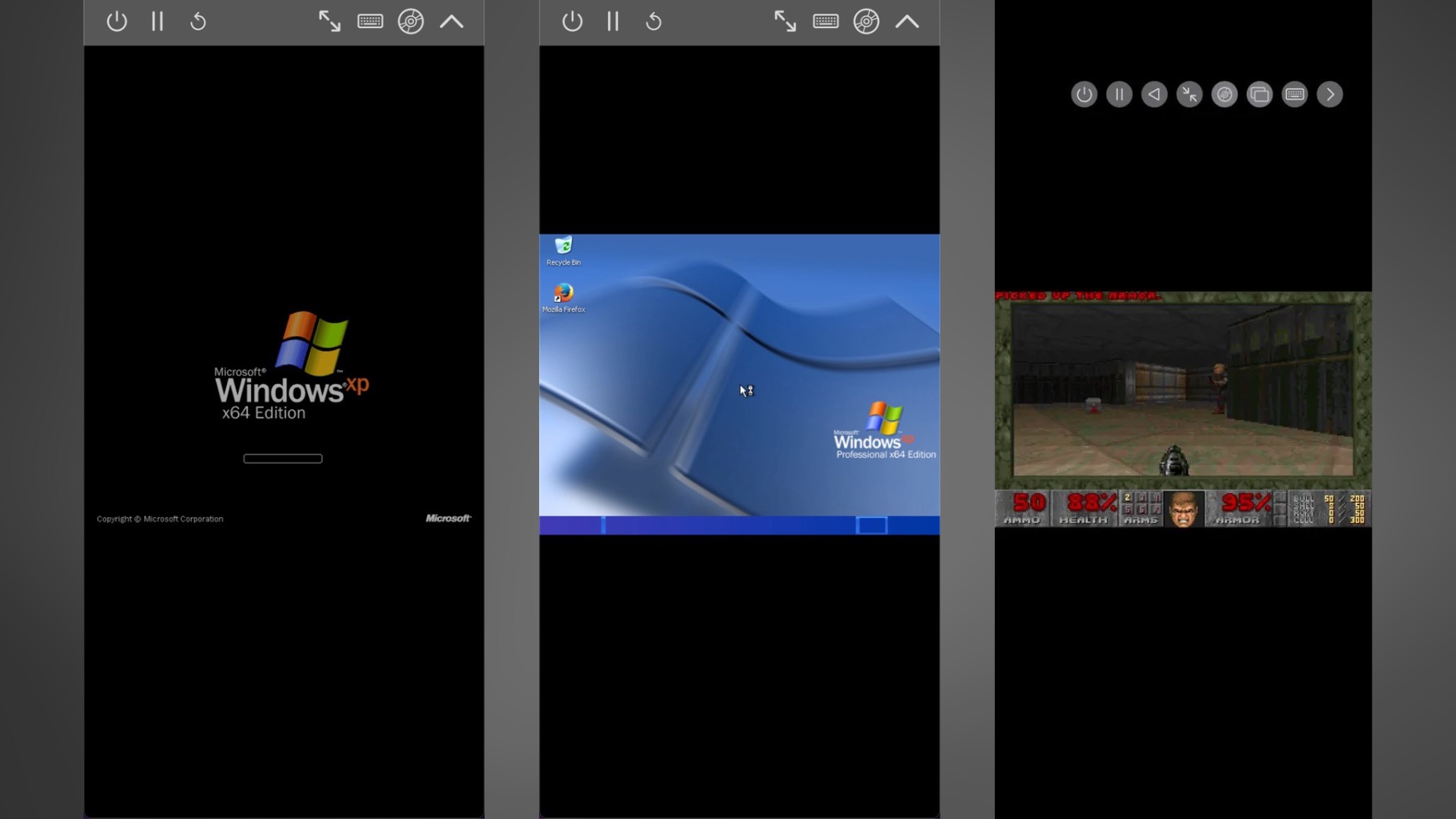First PC emulator arrives on iOS App Store, delivers i486 or PowerPC fun on your iPhone, iPad or Vision Pro
Play Doom on your iPhone just like you did on your 486 decades ago.

Despite Apple’s initial rejection of the emulator app and the developers’ initial decision to give up, UTM SE was approved and released on the App Store Sunday. The “retro PC emulator” allows you to run classic operating systems, software, and games on the iPhone, iPad, and Vision Pro.
We are happy to announce that UTM SE is available (for free) on iOS and visionOS App Store (and coming soon to AltStore PAL)!Shoutouts to AltStore team for their help and to Apple for reconsidering their policy.https://t.co/HAV5JnT5GOJuly 13, 2024
UTM is a popular alternative on the Mac to applications like Parallels, VMWare, and VirtualBox. It acts as a graphical interface to the command-line-driven emulator Qemu. It’s never been officially available to iOS users, though, because Apple didn’t allow emulators of any sort on the iOS App Store until April 2024.
When Turing Software first submitted UTM SE to the App Store, Apple rejected the app. Apple also refused to notarize it for third-party app stores in the European Union. Part of the problem was that the app relied on Just In Time (JIT) compilation to provide a satisfactory emulation experience. JIT compilation means compiling code as a program is running rather than beforehand, something Apple deems a security risk on iOS.
Gaming emulators like DolphiniOS have also been rejected for needing JIT support. DolphiniOS depends on the technique to emulate newer Nintendo consoles. UTM used it to translate PowerPC code to run on the Arm-based chips found in current Apple devices.
Unwilling to resubmit the app without JIT support because doing so meant a subpar experience, it seemed as if UTM would not come to iPhones and iPads without jailbreaking the devices. However, help for the project came from another Qemu developer. Qemu is the actual emulation layer UTM uses to allow you to run software as if it was on an old i486 or PowerPC-based Mac.
The team implemented a version of the Qemu Tiny-Code Threaded Interpreter (TCTI). Qemu TCTI interprets the code rather than compiling it, allowing Turing Software to get around the JIT ban. Mind you, this results in a rather slow experience even by the standards of the emulated hardware. That’s why the app includes the “SE” tag at the end — “SE” stands for “Slow Edition.”
That being said, the approval is good news for other emulator developers. For the more general audience, you can install UTM SE from the App Store to run classic games or operating systems on emulated x86, PPC, and RISC-V architectures.
Get Tom's Hardware's best news and in-depth reviews, straight to your inbox.

Jeff Butts has been covering tech news for more than a decade, and his IT experience predates the internet. Yes, he remembers when 9600 baud was “fast.” He especially enjoys covering DIY and Maker topics, along with anything on the bleeding edge of technology.
-
cd_reader_eater ReplyApple for reconsidering their policy
Fix it to EU clapping Apple's cheeks, forcing Apple to come back down to Earth. -
newtechldtech Emulators should never be allowed on any mobile phone ... they are a security risk.Reply -
cd_reader_eater Reply
I wanted to reply with an insulting satirical answer but maybe you are actually serious or don't know what you're talking about (or both).newtechldtech said:Emulators should never be allowed on any mobile phone ... they are a security risk.
What on earth is a security risk about emulation (on a phone/desktop, doesn't matter which client) ??
The user is the weakest link in the security chain.
You are more likely to get malware from a qr code scanner/note-taking/pdf editor you randomly downloaded than an emulator which are mostly upheld by voluntary enthusiasts for an ungrateful extremely-bothering crowd. -
das_stig Have to agree, any emulator or anything running in the emulator will soon be called out by the community for doing anything naughty and pulled quicker than anything else you will find in the Apple or Android store.Reply -
newtechldtech Replycd_reader_eater said:I wanted to reply with an insulting satirical answer but maybe you are actually serious or don't know what you're talking about (or both).
What on earth is a security risk about emulation (on a phone/desktop, doesn't matter which client) ??
The user is the weakest link in the security chain.
You are more likely to get malware from a qr code scanner/note-taking/pdf editor you randomly downloaded than an emulator which are mostly upheld by voluntary enthusiasts for an ungrateful extremely-bothering crowd.
Emulators are made by "Pirates" no matter how they claim they dont intend to use pirated images ... Emulators come from pirates ! they can escape legally by not including images with their software but their aim is FREE GAMES. and their community is the same. they are not "clean" .
you are 100 folds likely to get an emulator with backdoors then any other software because you are entering the pirates NEST